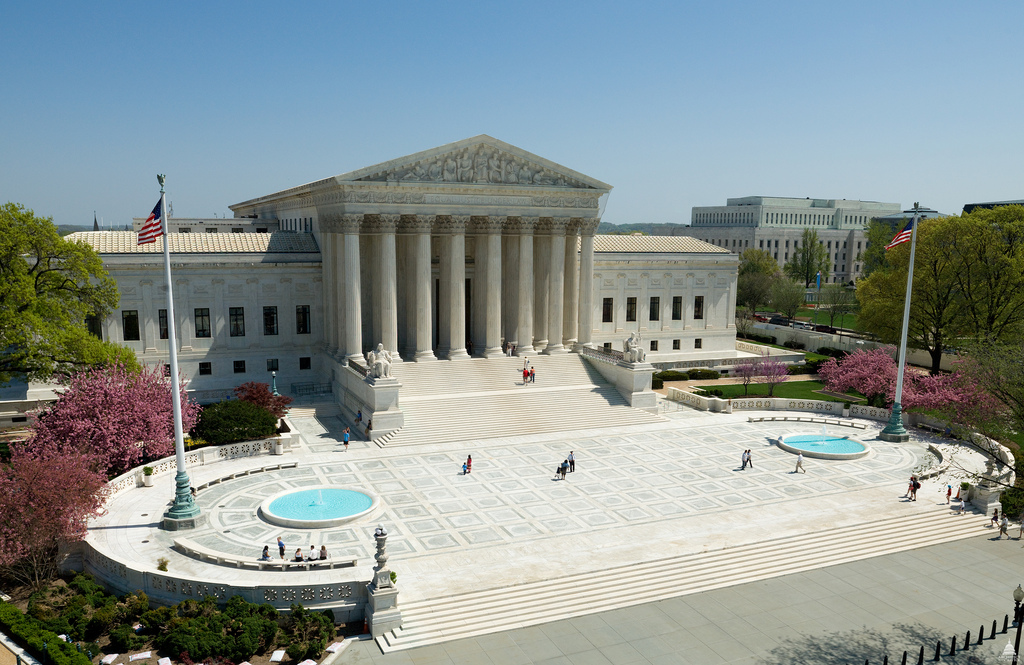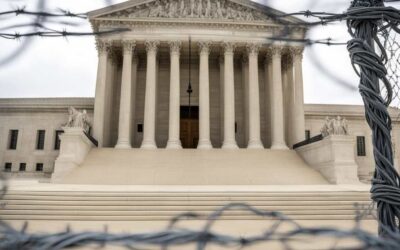The decision underscored the principle that only activities that are essential and directly related to an employee’s primary job responsibilities are subject to compensation.
In a recent decision by the Supreme Court of the United States (SCOTUS), Starbucks received a favorable outcome in a significant labor dispute. The case centered around Starbucks Corporation v. Superior Court of Los Angeles County (Dana Zelman, et al.), a class action lawsuit involving California employees seeking compensation for off-the-clock work.
Background of the Case: The lawsuit was initially filed by former Starbucks employees who alleged that the company violated California labor laws by requiring them to perform certain tasks off-the-clock without compensation. These tasks included closing duties such as locking doors, setting the alarm, and completing paperwork after clocking out.
Legal Issues: The key legal issue revolved around whether these closing tasks constituted compensable work under the Fair Labor Standards Act (FLSA) and California labor laws. The plaintiffs argued that Starbucks’ policies and practices effectively required them to work off-the-clock, leading to unpaid wages.
Lower Court Proceedings: Initially, the Superior Court of Los Angeles County certified a class action lawsuit against Starbucks, allowing current and former employees to join together in seeking compensation for unpaid wages related to off-the-clock work. This decision was upheld by the California Court of Appeal.
SCOTUS Decision: However, the case reached the Supreme Court of the United States, which ultimately ruled in favor of Starbucks. The SCOTUS decision focused on the interpretation of federal labor law and whether the tasks performed after clocking out were integral and indispensable to the employees’ principal activities.
The Supreme Court’s ruling emphasized the distinction between preliminary or postliminary activities and the core work duties for which employees are compensated. The justices found that the closing tasks at issue—such as securing the premises—were part of Starbucks’ overarching operations but did not constitute compensable work under federal law. The decision underscored the principle that only activities that are essential and directly related to an employee’s primary job responsibilities are subject to compensation.
Implications of the Decision: The SCOTUS decision has significant implications for labor law and class action lawsuits involving off-the-clock work. It reinforces employers’ arguments regarding the scope of compensable activities under federal law, potentially limiting the grounds on which employees can claim unpaid wages for tasks performed outside of regular working hours.
Conclusion: In conclusion, the recent SCOTUS decision in Starbucks v. Superior Court of Los Angeles County (Dana Zelman, et al.) delivered a win for Starbucks by clarifying the boundaries of compensable work under federal labor law. The ruling underscores the importance of distinguishing between integral job duties and peripheral tasks when assessing claims of off-the-clock work, setting a precedent that may influence future litigation and employer practices concerning wage and hour disputes in the United States.
Legal Counsel and Your Rights
When facing legal challenges, particularly in criminal cases, it is advisable to seek legal counsel immediately.
An experienced attorney can provide guidance on how to navigate interactions with law enforcement while safeguarding your constitutional rights.
Since 1993 our expert legal defense in navigating criminal law matters and protecting your constitutional rights are what we eat for breakfast everyday.
Contact Komorn Law PLLC if you’re ready to fight and win.
Research us and then call us.
More Rights You Should Know

A secured and safe vote thanks to new laws in Michigan
Governor Whitmer Signs Historic Election Bills Package to Ensure Every Vote Can be Cast and CountedIn Case You Missed It November 30, 2023 “Today, we are expanding voting rights and strengthening our democracy,” said Governor Whitmer. “Michiganders spoke clearly last...

4th Circuit says – Assault weapons can be banned
This case is about whether the Act’s general prohibition on the sale and possession of certain “assault weapons,” are unconstitutional under the Second Amendment. An en banc federal appeals court upheld Maryland’s ban on assault-style weapons in a 10-5 decision...
Other Articles
Forfeiture Law: SCOTUS and Sixth Circuit Issue Landmark Rulings
Forfeiture Law in Focus: SCOTUS and Sixth Circuit Issue Landmark RulingsThe landscape of forfeiture law has been significantly shaped by recent decisions from the U.S. Supreme Court and the Sixth Circuit Court of Appeals. These rulings, in the cases of United States v...
When Can Your Silence Be Used Against You in a Legal Situation?
US Supreme Court - Salinas v. TexasWhen Can Silence Be Used Against You? In the realm of criminal law, the Fifth Amendment to the United States Constitution grants individuals critical protections, including the right to remain silent and the right against...
Supreme Court 8-1 Gun Possession Decision Changes Second Amendment
Supreme Court 8-1 Gun Possession Decision Changes Second Amendment Landscape Forever!Issue: Whether 18 U.S.C. 922(g)(1), the federal statute that prohibits a person from possessing a firearm if he has been convicted of “a crime punishable by imprisonment for a term...
Government Drones in Your Life – Yes, They Made up a Reason
Long Lake Township v. Maxon The Costs Outweigh Benefits in Exclusionary Rule Application and the Slippery Slope of Fourth Amendment ProtectionsThe recent decision by the Michigan Supreme Court in Long Lake Township v. Maxon represents a significant shift in the...
Supreme Court Opinion – Created federal agencies need judicial oversight
Summary of the Opinion in Loper Bright Enterprises v. RaimondoIn Loper Bright Enterprises v. Raimondo, the Supreme Court addressed the enduring precedent set by Chevron U.S.A., Inc. v. Natural Resources Defense Council, Inc., which has shaped administrative law for...
Carjacking is a Federal Offense
Carjacking is a Federal OffenseCarjacking, the act of forcibly stealing an occupied vehicle, has long been a concern for public safety. It was a local and state issue until a series of violent incidents in the early 1990s that carjacking became a federal...
SCOTUS: No separate hearing required when police seize cars loaned to drivers accused of drug crimes
SCOTUS: When police seize cars loaned to drivers accused of drug crimes it does not necessitate a separate preliminary hearing.The U.S. Supreme Court has ruled against two women who loaned their cars to others arrested for drug crimes while using the vehicles, leading...
SCOTUS Opinion, SHEETZ v. COUNTY OF EL DORADO, CALIFORNIA
The Constitution provides “no textual justification for saying that the existence or the scope of a State’s power to expropriate private property without just compensation varies according to the branch of government effecting the expropriation.”The case in question...



















